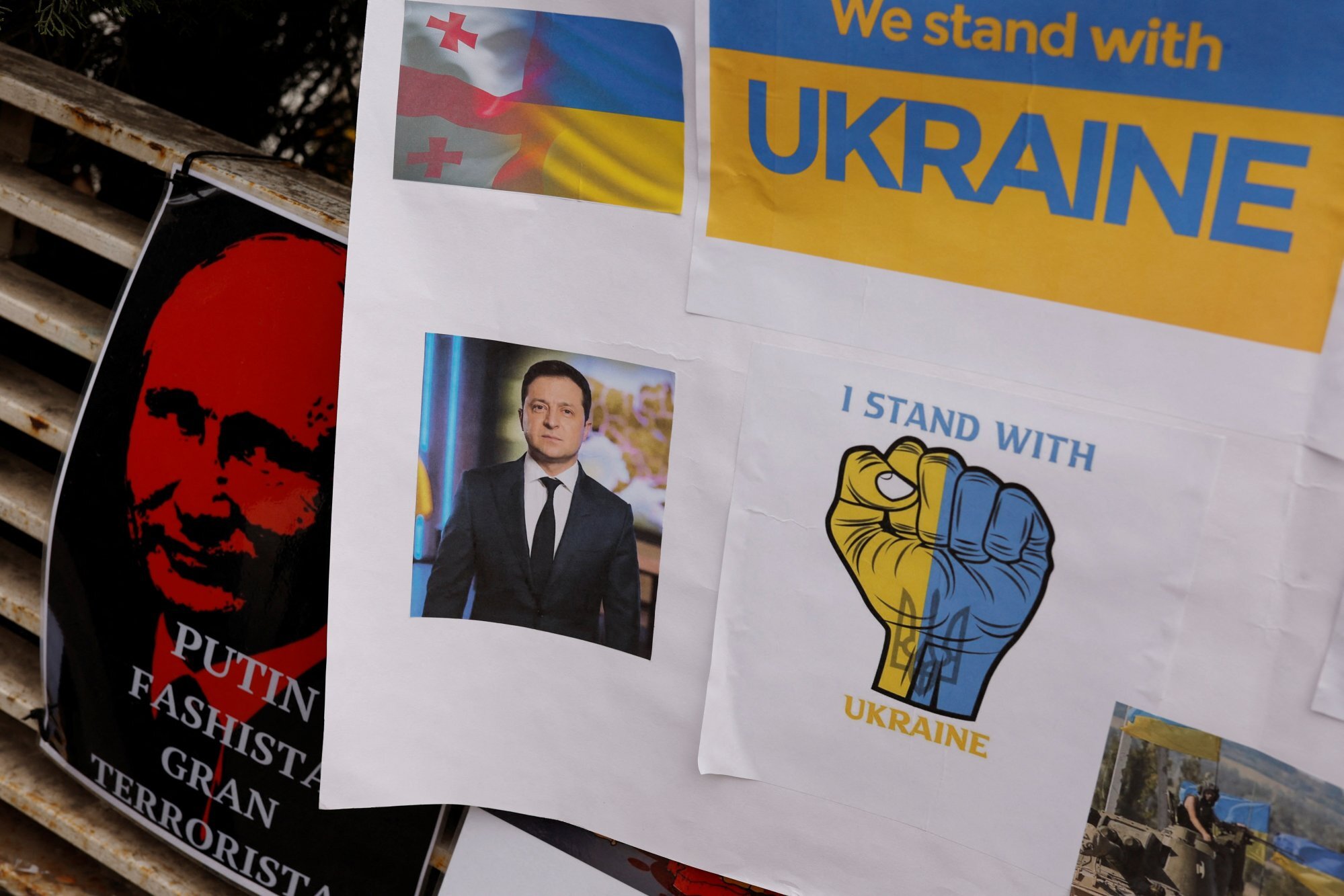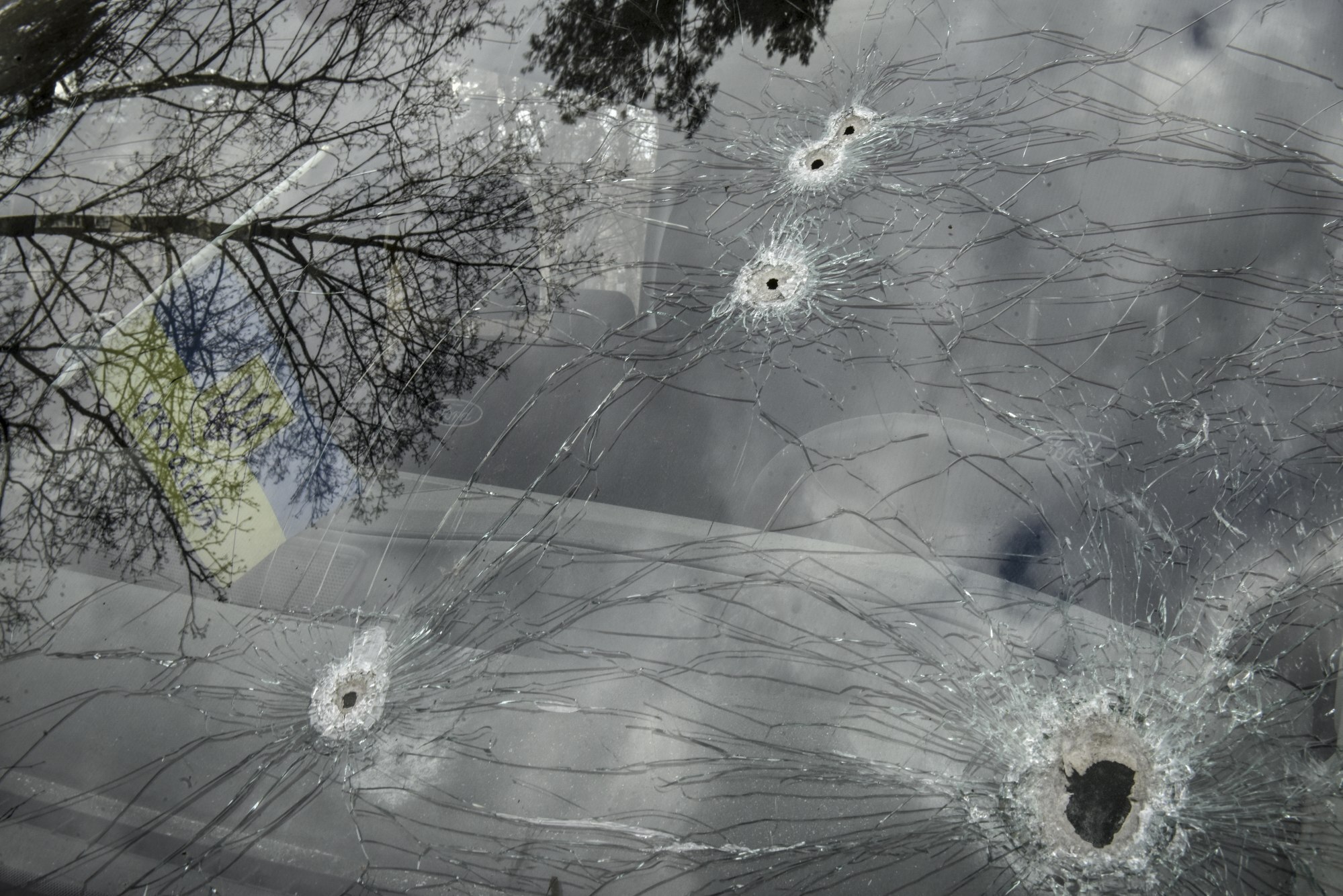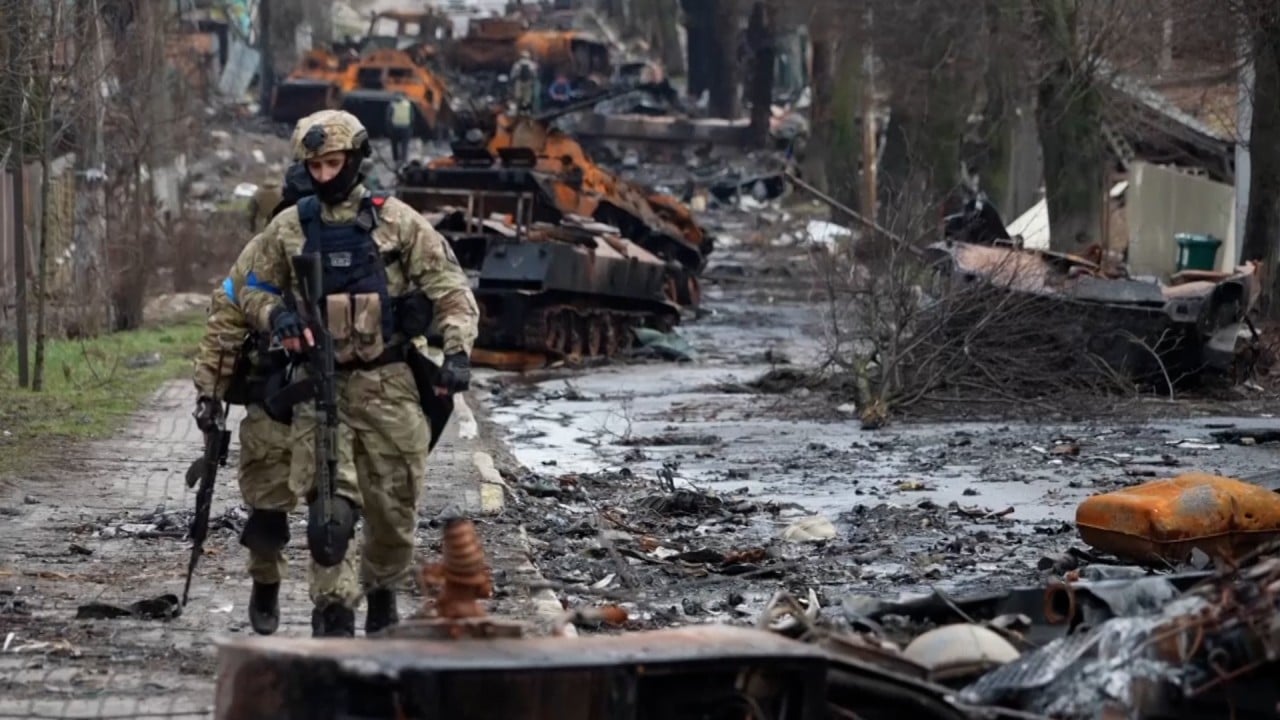
Ukraine: EU nations expel 150 Russian diplomats, many for ‘spying’, in 48 hours
- Italy, Spain, Denmark, Sweden among several countries to throw out Moscow’s officials amid outrage over Putin’s invasion of Ukraine
- One count puts the total number expelled by the EU since the war began on February 24 at around 260; Kremlin talks of ‘retaliatory steps’
Italy, Spain and Denmark joined EU allies Tuesday in expelling Russian diplomats amid increasing outrage over the Ukraine conflict, with around 150 sent home in the last 48 hours.
The expulsions, many for alleged spying, follow international condemnation of killings in the town of Bucha, near Kyiv, where dozens of bodies were discovered after Russian troops withdrew.
Moscow has rejected Western accusations that its forces were responsible, suggesting the images are fake or the deaths occurred after they pulled out.
Kremlin spokesman Dmitry Peskov told reporters on Tuesday that the mass expulsions of its diplomats was “a short-sighted move”.

“Narrowing down opportunities for diplomatic communication in such an unprecedentedly difficult crisis environment is a short-sighted move that will further complicate our communication, which is necessary to find a solution,” he said.
“And this will inevitably lead to retaliatory steps,” he added.
The expulsions come as the EU discusses a fifth round of sanctions on Russia for its invasion of Ukraine on February 24, with member states expected to sign off on it this week or next.
Italy’s foreign minister, Luigi Di Maio, said 30 Russian diplomats were being expelled “for national security reasons” in the context of the ongoing war.
A few hours later, Spain’s foreign minister announced its own expulsion of “around” 25 Russian diplomats.

“The unbearable images we have seen of the massacre of civilians in the town of Bucha after the withdrawal of the Russian army deeply outrage us,” said Jose Manuel Albares.
The Russian diplomats and staff “represent a threat to the interest of the country” and they will be expelled “immediately”, he told a news conference following a weekly cabinet meeting.
Sweden’s foreign ministry said it was expelling three Russian diplomats who conducted “illegal operations” there.
And Denmark announced a similar move for 15 Russian “intelligence officers” accused of spying on its territory, something it said was “unacceptable”.
The Danish government condemned what it called “Russia’s brutality” in Bucha, saying: “Deliberate attacks against civilians are a war crime.”
But Foreign Minister Jeppe Kofod said diplomatic ties would remain with Moscow, noting that the Russian ambassador and embassy staff in Copenhagen were not being expelled.
The announcements follow similar moves by EU allies France, which on Monday expelled 35 Russian diplomats, and Germany, where officials said 40 diplomats had been sent home.
Also on Monday, Lithuania said it was expelling the Russian ambassador in response to “Russia’s military aggression” and what it called the “horrific massacre in Bucha”.
According to an AFP count, European Union countries have now expelled around 260 Russian diplomats since the invasion.
Russia said on March 29 it was expelling 10 diplomats from Latvia, Lithuania and Estonia in a tit-for-tat move.
Ukrainian President Volodymyr Zelensky has urged the world to enforce tough new sanctions on Moscow over the Bucha killings, which he has described as “war crimes” and “genocide”.

.png?itok=arIb17P0)
